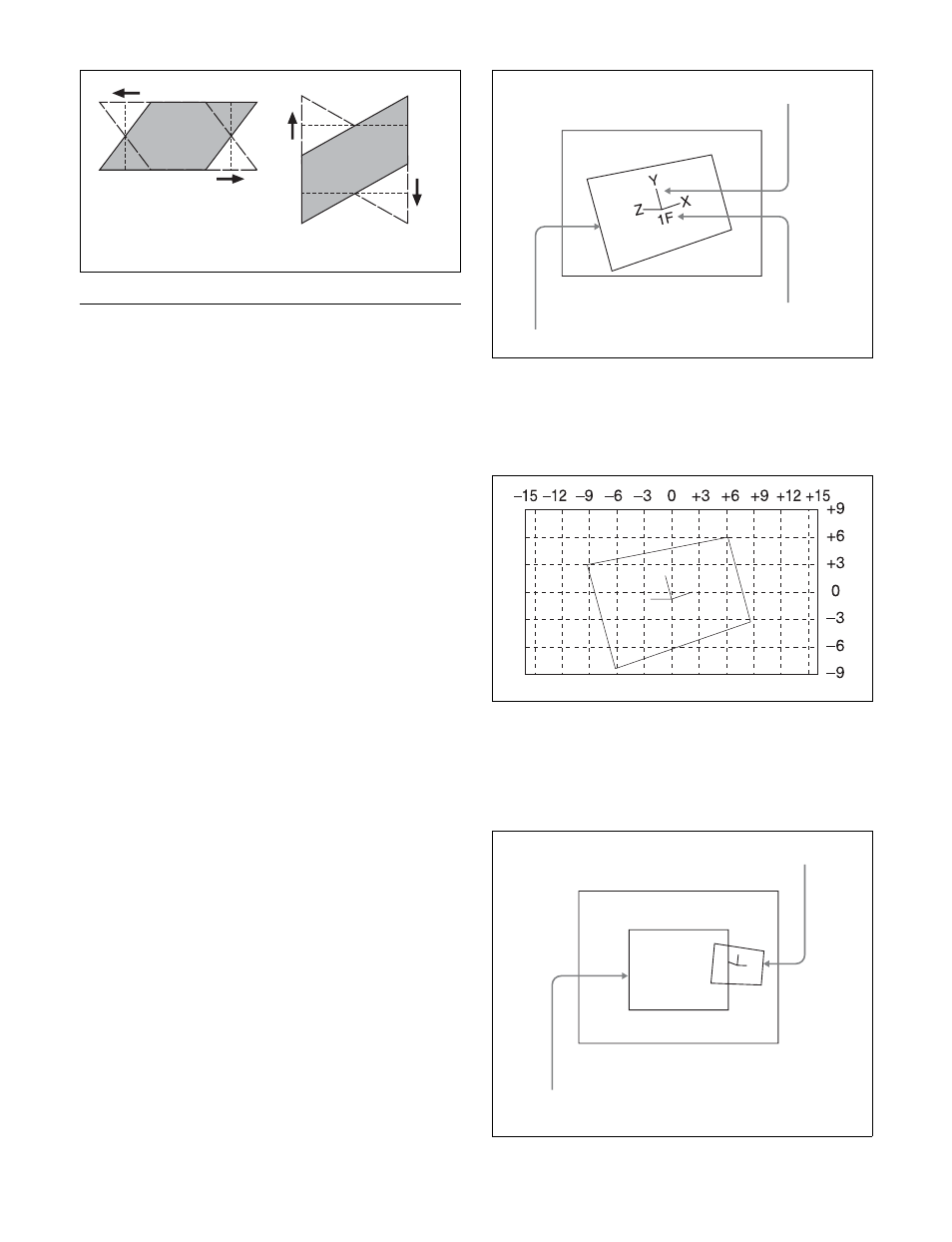Graphics display – Sony GP-X1EM Grip Extension User Manual
Page 219

219
Graphics Display
Graphics display is a function that allows you to display
wire frames, coordinate axes, and a grid over the current
DME image, making it easier to create effects in three-
dimensional space.
To make graphics display settings, use the DME menu
.
You can display the following kinds of graphics.
Wire frame
A wire frame displays an image enclosed in a frame. This
allows you to check the position and size of the image. If
there is a shadow
, a frame is shown for the
shadow as well.
Coordinate axes
This is a three-dimensional display of coordinates in local
or global space.
This allows you to check the origin and the directions of
the X-, Y-, and Z-axes.
Channel ID
This displays the channel number so that you can check
which channel is being used. This is a useful feature when
you are working with multiple channels.
Channel IDs are displayed differently in local and global
space.
• In local space, the channel number is displayed along
with “F” or “B” to indicate whether you are looking at
the front (F) or back (B) of the current wire frame. For
example, “1F” means the front of the wire frame on
channel 1 in local space.
• In global space, the channel number is displayed along
with “G” to indicate global. For example, “G2” means
channel 2 in global space.
Grid
This is a grid pattern covering the whole of the monitor
screen.
The grid makes it easy to set the position of an image in
two-dimensional space.
Graphics display, shrinking
You can shrink the graphics display so that you can see
beyond the range displayed on the normal monitor screen.
This makes it possible to visually set the location of images
in a larger space. The range displayed on a normal monitor
screen is indicated by a frame.
Change of slope on X-axis
Change of slope on Y-axis
Wire frame
Local space coordinate axes
Channel ID
Wire frame
Range displayed on normal
monitor screen
